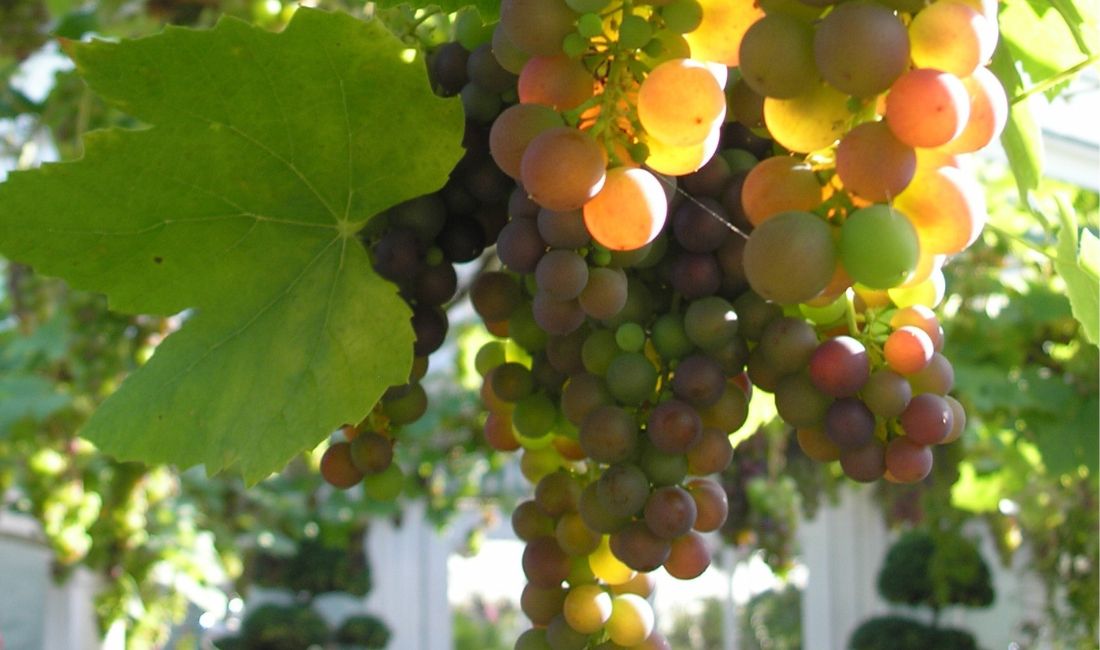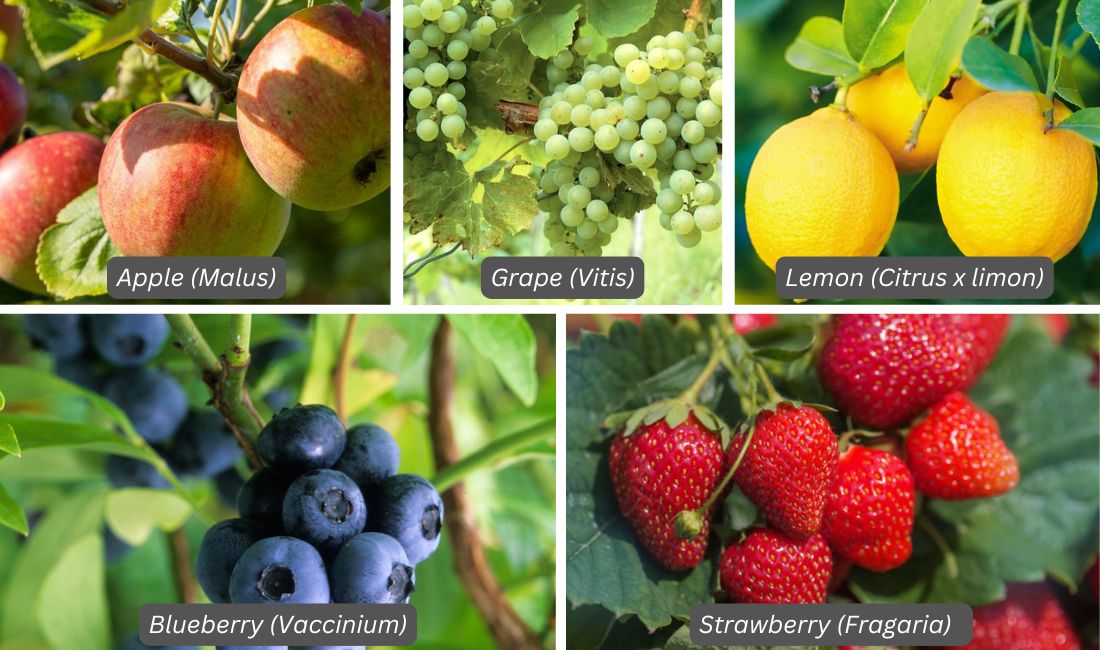
A wide range of delicious fruits can be grown in the UK and although most of us don’t have enough space to grow much fruit, we probably all have the space to grow some, and the satisfaction and fun (and flavour!) from growing fruit is immense.
Growing at least some fruits not only provides fresh and flavoursome produce but also reduces your carbon footprint, avoids chemicals often used in commercial growing, and ensures that you can eat the produce at its peak ripeness.
Many fruit trees and bushes are interesting and often attractive plants in their own rights so can easily be mixed among other ornamental plants within a garden, or grown in separate areas, or even on balconies and in hanging baskets.
The wide range of fruits that can be grown in our climate includes:
Fruit trees such as apples, pears, plums and cherries
Soft fruits such as blueberries, strawberries, raspberries and grapes
Other fruits such as rhubarb and citrus trees (which require winter protection)
Many of the soft fruits are ideal for kid-friendly gardening, providing children with a fun, rewarding and learning experience.
Caring for Fruit Plants
Growing fruit successfully does require attention to some key factors. We recommend asking our friendly team for advice and tips for growing specific fruits but there are some general factors that apply to the majority of fruits.
Most fruit trees and bushes need a sunny spot with at least six hours of daily sunlight, in a spot that is also well protected from strong winds as winds can damage blossoms and hinder pollination.
Ensure the soil is well-drained and add compost and other organic matter such as SylvaGrow® Farmyard manure to improve the soil structure and fertility. We also recommend applying a layer of mulch around the base of plants to conserve moisture, suppress weeds, and regulate soil temperature.
Be sure to grow fruits that are hardy in the UK, or ensure that you can move them under cover for protection during the winter. Many fruit trees, especially apples and other tree fruits, grow to a range of sizes depending on the rootstock and form of the tree – so always check that you have the necessary space!
To maximise fruit production, water regularly, especially during dry spells – and apply fruit-specific fertilisers in late winter or early spring to support growth and fruit development. Remember that any fruits grown in containers will require more frequent watering and feeding.
Depending on the type of fruit you are growing, be sure to prune at the appropriate time of year to encourage fruit production and maintain the shape of the plants. Monitor the plants regularly for pests and diseases and treat appropriately.
For both pruning requirements and pests and diseases we recommend either checking the RHS website for specific details or asking one of our friendly, experienced team.
And finally, harvest the fruit when it’s ripe, sit back, relax and enjoy it! You may not be able to grow significant quantities but what you can grow will be delicious and very, very satisfying!
Our Favourites
There may be many fruit plants that we can grow in the UK but there are some clear favourites that are not only very popular, but also the easiest and most reliable to grow.
Strawberry (Fragaria) – iconic summer fruits, a great choice for beginners, and easy to grow. Plant them in early spring or early autumn. Ideal for containers (including hanging baskets) as well as in the ground. Keep them well-fed and watered and watch out for slugs and snails. Ideal for kid-friendly gardening.
Blueberry (Vaccinium) – require acidic soil but thrive in containers so can still be grown in alkaline areas using acidic compost in pots. Require lots of sun and lots of moisture. Blueberries are widely considered to be a superfood; packed with nutrients, including antioxidants and vitamins, they are associated with various health benefits. Protect the plants from birds with netting as birds are fond of them too!
Grape (Vitis) – can be grown outdoors in sheltered sunny locations (ideally south-facing) or with the help of a greenhouse or conservatory. Thrives in well-drained soil. Not only produces fruit but is also a beautiful ornamental climber with large palmate leaves that colour up dramatically in the autumn. Grape plants require strong supports for the tendrils to wrap around and support the stems. There are numerous different varieties, some producing dessert grapes and others producing grapes for wine making.
Apple (Malus) – a classic choice of fruit tree, with many varieties available, including Bramleys, Cox's Orange Pippin, and Golden Delicious. The UK provides the ideal maritime climate for growing apples pretty much anywhere in the country. Easiest and most productive fruit tree to grow and ideal for wildlife too. Be sure to research the right variety according to your location and space, as well as your taste preferences. Long living so you’ll have fruits for years to come!
Lemon (Citrus x limon) – best grown in containers so that they can be positioned outside during the summer and then relocated inside a greenhouse or conservatory for protection in a cool, bright location during the winter. Feed with a specialist citrus fertiliser from March to October according to the manufacturer’s instructions. Flowers are self-pollinating, fruits take almost a year to develop fully. Repot in spring when plants become pot-bound, using a well-draining John Innes compost (or a specialised citrus compost), with added grit or sharp sand for drainage.

Clifton Nurseries Garden Centre
London, W9 2PH
0207 432 1867
Monday – Saturday 9am-5:30pm, Sunday 10.30am-4.30pm
Clifton Nurseries Garden Services
London, W9 2PX
